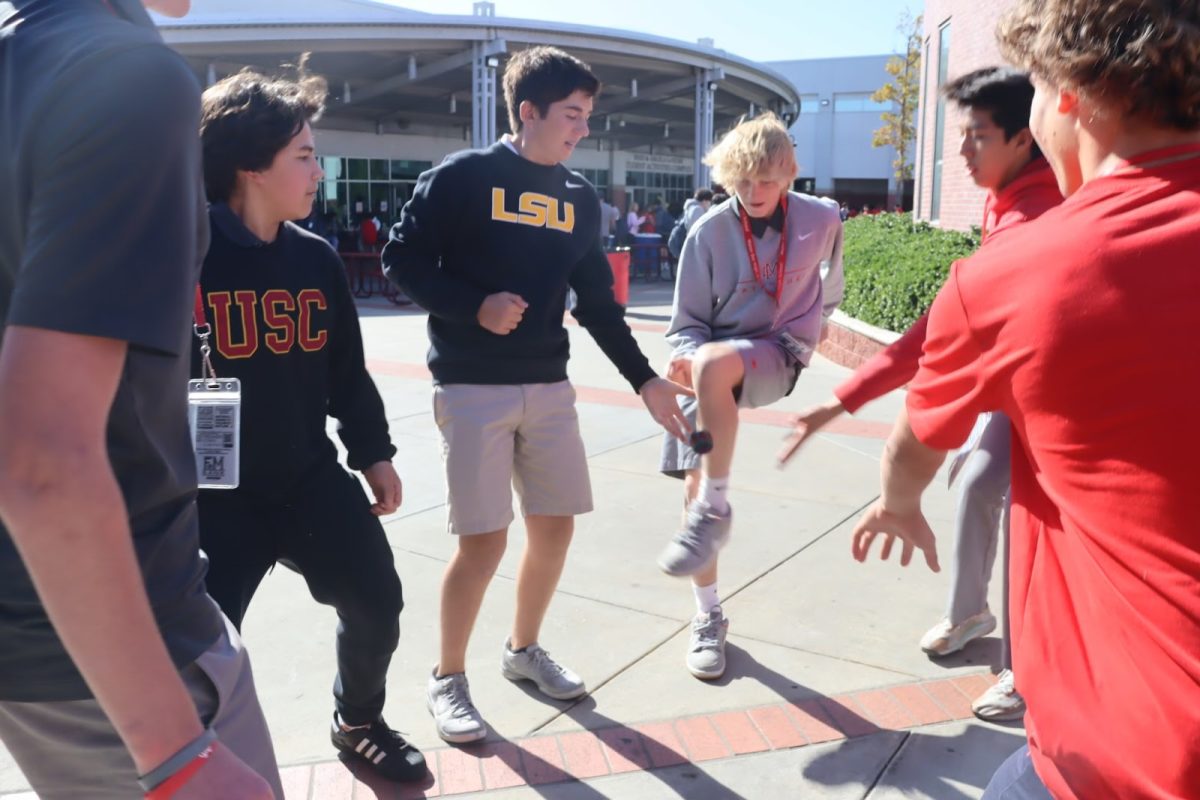Many faculty members hold multiple positions at Mater Dei. Several teachers act as athletic coaches as well as traditional educators. These individuals are not only dedicated teachers and mentors in the classroom, they also support the students in their athletic careers. While either role can be a full-time job on its own, these educators are passionate about an array of subjects and willing to undertake extra responsibilities, while contributing to the positive and supportive Monarch community.
Many of these teacher-coaches were once student-athletes. Their experience in their areas of expertise allows them to connect with their students on a personal level. With passions in a multitude of subjects, these educators are more than ready to coach and teach at the same time. Kelly Petro, the Honors Biology Teacher and JV Lacrosse Coach, describes his initial involvement in athletics and academics.
“I’ve been both a teacher and a coach for [two school] years,” Petro said. “When I was a student, I was always a student-athlete as well. It [has] kind of always been my schedule [and] routine. I was coaching lacrosse all throughout college, [and] I got a job teaching. I always wanted to keep doing it.”
Since these teachers and coaches are often responsible for athletic and academic programs, they have to carefully manage their priorities and plans. Whether they have to finish lesson planning or watch game footage, they enjoy the variation and unique aspects of their day. These educators have a well-planned daily schedule for the tasks they must complete.
“I try [to] take some time [to] review film [and] make sure I [create] lesson plans,” Petro said. “It’s been nice because [these jobs] are both at the same place. If we have practice before school, I’ll just go to practice from 7:30 a.m. and come straight to teaching. If it’s after school, [however], I finish teaching and go straight [to the field].”
While some teachers and coaches are teaching in the field in which they studied for their college degree, some have taken on new courses to teach. Regardless of their past experiences, their motivation is the same: providing support to students both in the classroom and in the field. Rick Martinez, the Track and Field Head Coach and College Prep Biology Teacher, describes his start as a Mater Dei teacher and coach.
“I was in law school when I initially got hired as a coach. I love coaching so much [that] I wanted to get more involved with the students, so I decided to start teaching,” Martinez said. “Since then, it’s been 30 straight years of teaching science and also being [the] head cross country and track coach.”
As a track and field coach and biology teacher, Martinez, like many other well-rounded teachers and coaches, often has to live the so-called “double life.” Not only do these educators have to balance a variety of responsibilities, but they must manage a large group of individuals in a competitive environment. Through it all, these dedicated educators act as mentors and counselors to their student-athletes.
“It’s very busy early on and late [over the course of my day],” Martinez said. “I get to school early and try to get my classroom set up right away. Then if I have some spare time, I’ll start to [prepare] for practice [later]. But as school ends, I’m very busy on the track with athletes and coaches. [I am] figuring out race plans and [track] meet entries.”
For many educators, one of the most rewarding parts of the job is the opportunity to build lasting connections with students. As the students continue their journey in high school and beyond, the teachers can appreciate the special moments they have experienced together as they see them walk across the graduation stage. Anna-Lisa George, the Honors English 1 Teacher and Academic Decathlon Head Coach, recalls some of her favorite moments in her two areas of expertise.
“We have fun, quirky kids,” George said. “Everybody’s such an individual. They say the most clever, funny things. I get to grow up with them [and] get to know their families. The very first year, [when] we won regionals and went to state [was my most favorite memory]. We were even in the newspapers. I have had so many memories in practice.”
Although these educators teach a variety of subjects to student-athletes, they often have one lesson they hope to instill in all their students. Their lectures and classes are important to their students’ future careers, but these teachers believe that character and integrity have greater meaning and importance.
“To think critically and independently, to strive for excellence, and be the best they can be [is one of the most important lessons I teach],” George said. “Overall, [do] not just settle for good enough. In everything I teach [and] in academic decathlon, there are so many life skills. Students learn how to interview for jobs. They usually are successful in every job they’ve gotten.”
From their two professional roles, these teachers have the opportunity to see a more complete picture of each student-athlete and better understand their passions and future aspirations. Being a teacher and coach may carry extra responsibilities, but the fulfillment gained is well worth it.
“[Lacrosse] is more about fine-tuning and finding a way for them to shine, whereas biology is about finding a way to make the entire concept digestible for students,” Petro said. “[I make sure my student-athletes are successful from] just encouragement. Everyone’s amazing. [I love] how unique it is day to day. Every day is different.”
Coaches and teachers have become an integral aspect of Mater Dei. Not only do they dedicate themselves to supporting each student-athlete, but they recognize the special aspects of each student and program. Ultimately, without these educators, Mater Dei would not be the distinctive and successful high school it is today.




![DUNK THE TRASHKETBALL Honors Biology Teacher Kelly Petro clarifies the rules of his interactive science activity. Trashketball, Petro’s newly created game, reinstates crucial science concepts and terminology while allowing students to study recently learned material. Whether in the classroom or on the lacrosse field, Petro ensures that his student-athletes absorb the information using unique study methods. “For school, I try [to have] a general sense of what works for everyone in the classroom [studying wise]. I want everyone to know the [importance of what we are doing in biology],” Petro said.](https://thescarletscroll.com/wp-content/uploads/2025/06/HEIF-Image-1200x800.jpeg)

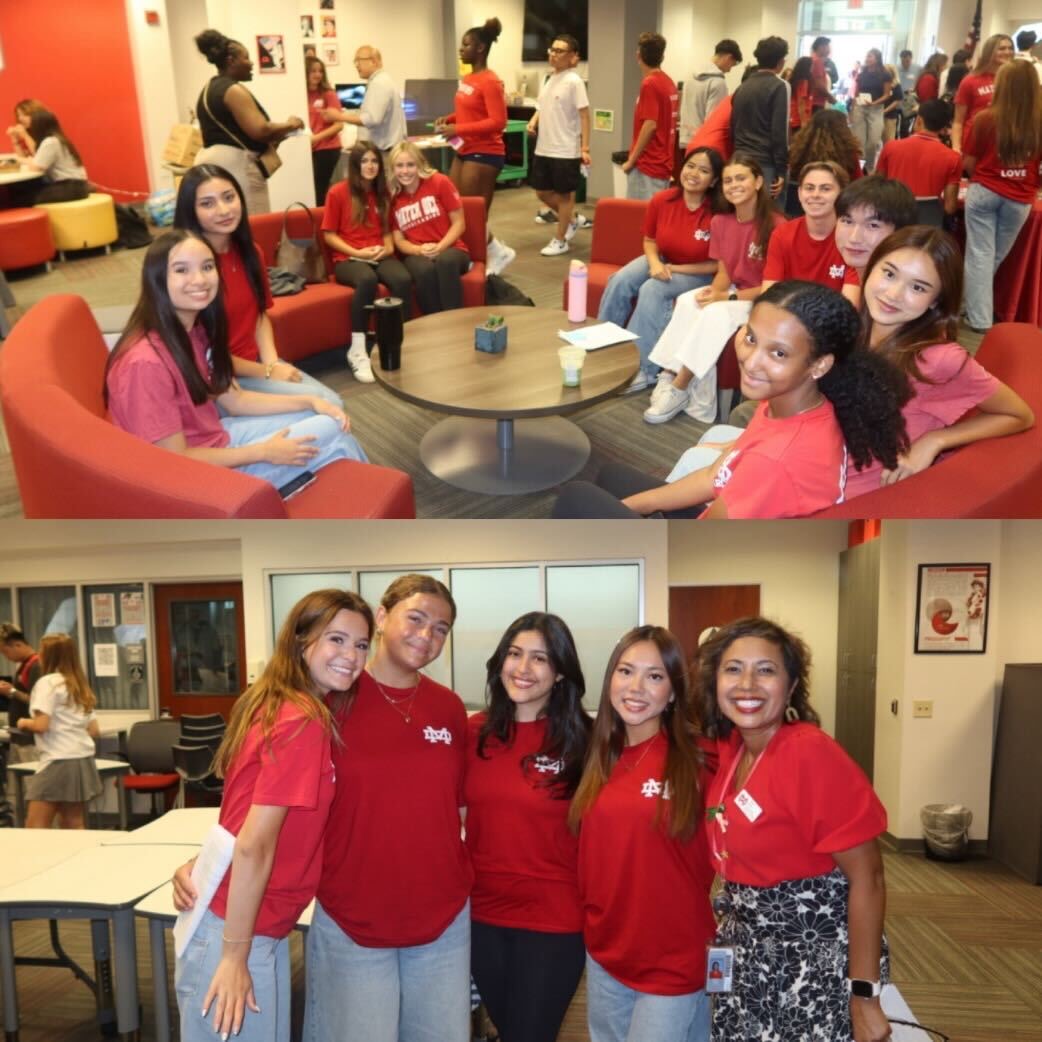
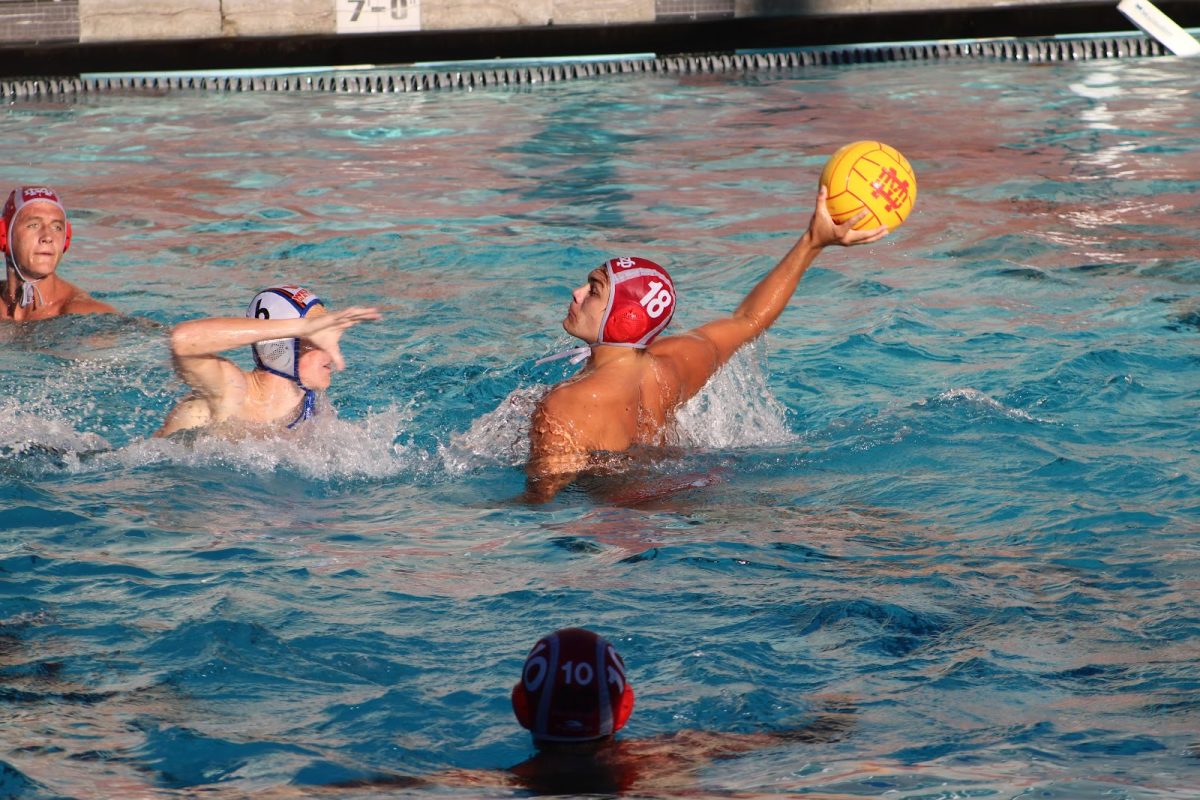

![PUTTING IN OVERTIME: Student wrestlers participate in scrimmage matches during practice. The Mater Dei Wrestling Team puts a lot of time and effort into training for matches. “I practice every day,” Gomez said. “We train for three hours and then [a] two hour lift.”](https://thescarletscroll.com/wp-content/uploads/2025/09/wrestling.jpg)
![SETTING THE STANDARD: Mater Dei High School and Playfly Sports announced its historic media partnership in the spring of 2025. As Mater Dei Athletics continues to achieve new heights, Playfly will introduce new partnerships and sponsors for these programs. With the added revenue and resources, Mater Dei can improve the high school experience for all students, while engaging the community in a showcase of Monarch pride. “[This partnership is designed] to increase the experience that our athletes and our non-student athletes have with the [athletic] programs,” Melvin said. “School spirit, engagement, and pride are all things we [keep in mind].” Photo taken by Kenzington Ragge.](https://thescarletscroll.com/wp-content/uploads/2025/09/IMG_0237.jpeg)


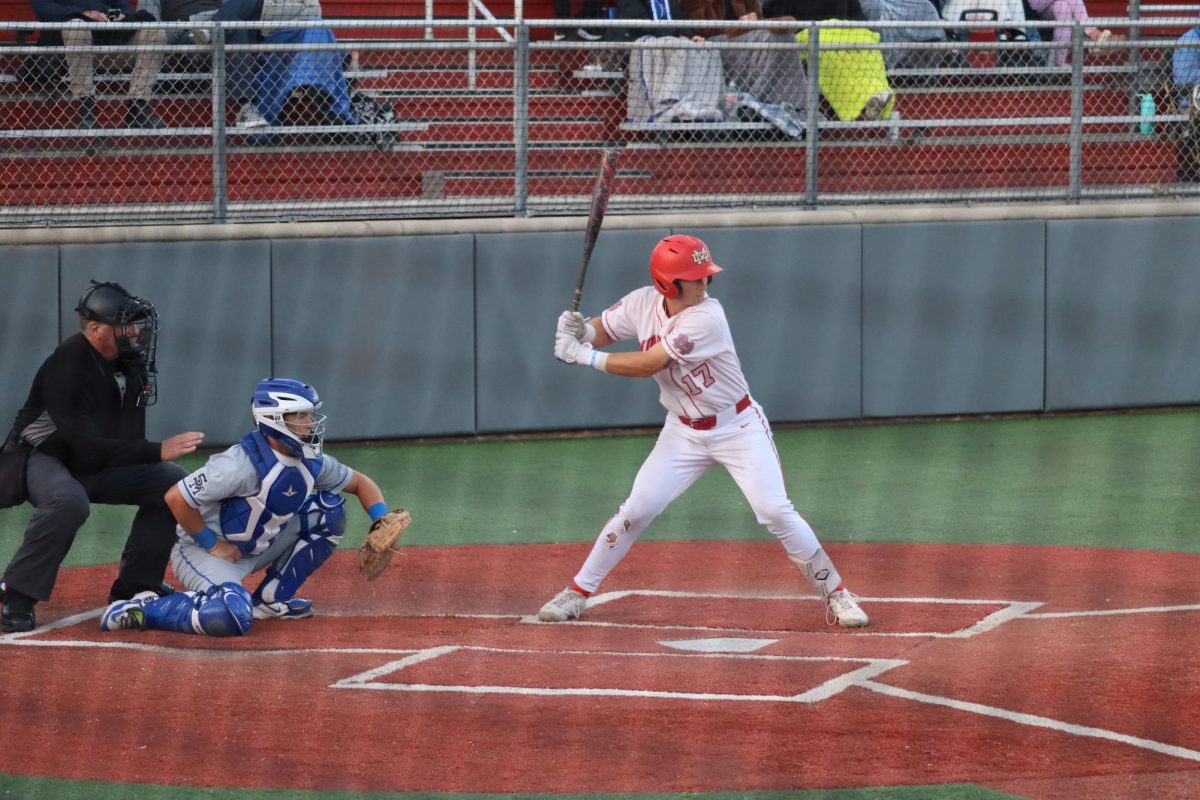
![FAITH THROUGH GENERATIONS Lenore O’Hara ‘53 (right) and Director of Discipline and Attendance Timothy O’Hara ‘78 (left) open the 75th Anniversary Mass in the Grotto. The attendance of alumni, faculty, students, and parents highlighted the connection within the school community. Vice President of School Relations Scott Melvin reflected that this was one of his most memorable moments he has had so far. “At the beginning in our opening Mass, watching Lenore O'Hara go up on stage, speak, and open our Mass, that was really beautiful,” Melvin said. “Although [Mater Dei has] changed tremendously over the years, elements that happened back in 1950 are still present today. And we are still fulfilling the mission of Catholic education and building servant leaders with our students.” Photo courtesy of Mater Dei High School.](https://thescarletscroll.com/wp-content/uploads/2025/09/IMG_3323-1200x808.jpeg)
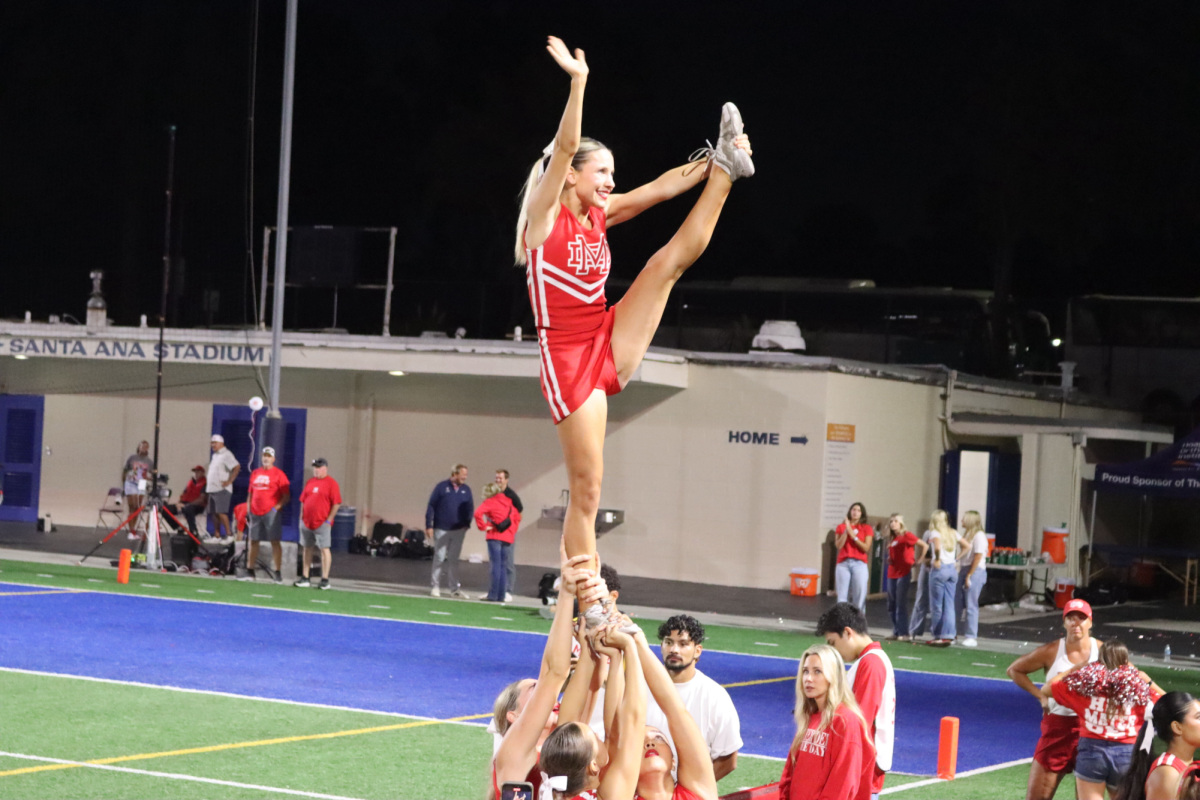
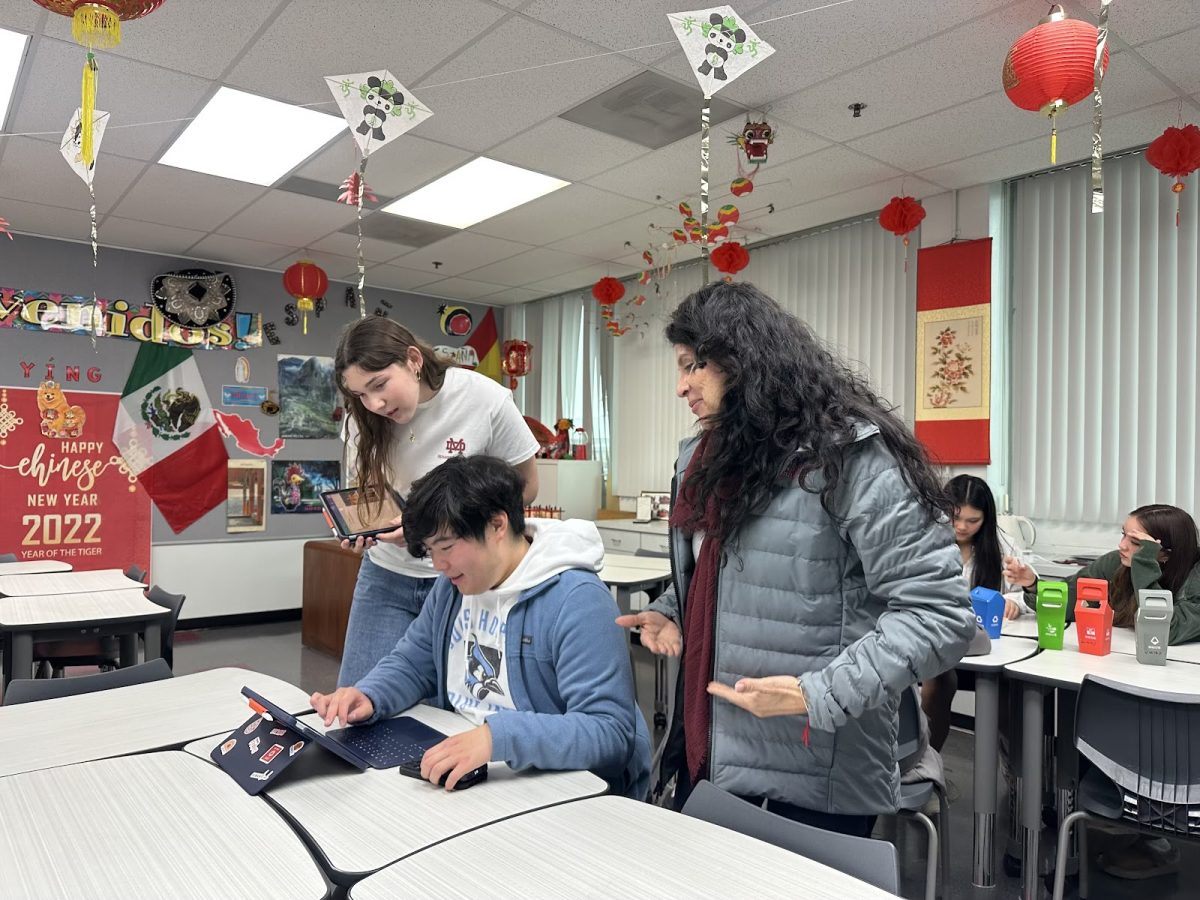
![LOOKING BACK AND LOOKING FORWARD As seniors prepare to don their caps and gowns, many reflect on their high school experience with a sense of pride. While four years may sound short, these years represent a great amount of growth and change within each and every student. Senior Sophia Tordera offers advice to future seniors looking to make the most of their final year. “Enjoy your last year and if you haven't done any of the school activities or been to any of the events, you should definitely go,” Tordera said. [Illustration by Victoria Cox]](https://thescarletscroll.com/wp-content/uploads/2025/04/IMG_1884-1200x902.png)
![FIGHTING THROUGH STORMS Coach Johnny Rodriguez cheers on his players as they ace their attacking skills during an after-school practice. Despite the cold rain, Rodriguez remains on the field as his players’ biggest supporter and source of positivity, leaving a lasting impact on them. “Coach Rodriguez has changed my perspective in life, [making it] more positive,” O’Hara said. “[He reminds me that] there's always something good to do, and I want to put that to my lifestyle.”](https://thescarletscroll.com/wp-content/uploads/2025/04/IMG_2611-1200x800.jpeg)
